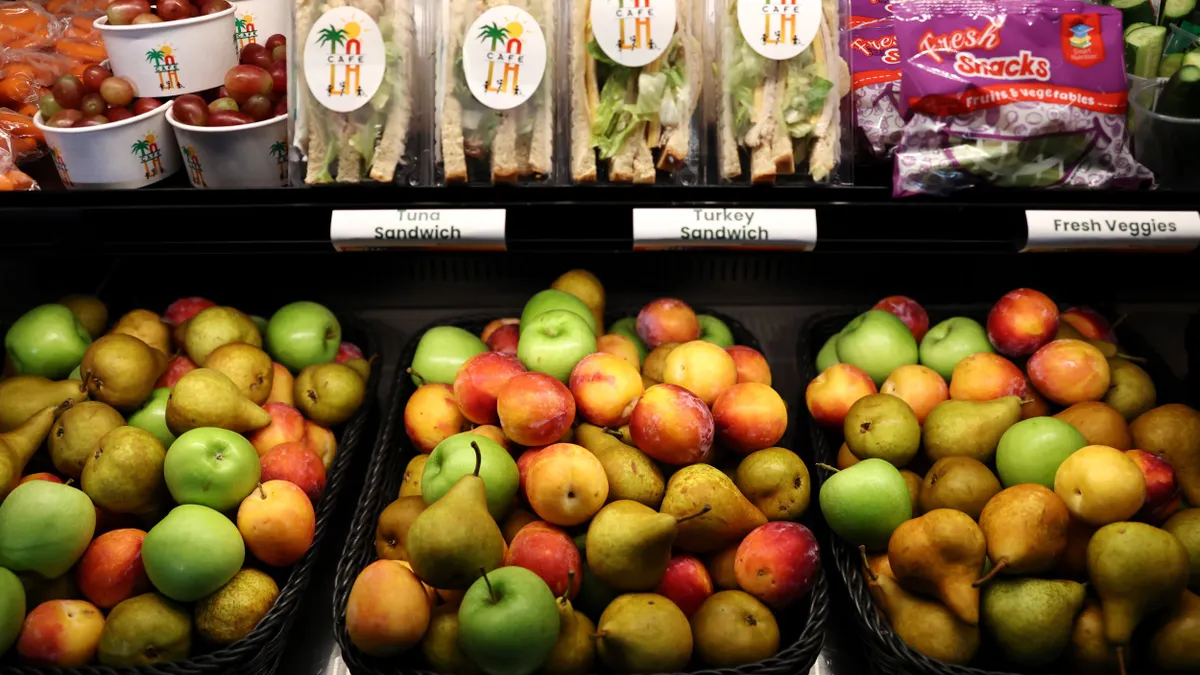Dive Brief:
- Starting in summer 2029, ultra-processed foods must be off the menu in school cafeterias, under a measure signed into law Wednesday by Gov. Gavin Newsom.
- The new law requires the state's Department of Public Health to define “ultraprocessed foods of concern” and “restricted school foods” by June 1, 2028, and for schools to begin phasing out these foods starting July 1, 2029. Vendors will be prohibited from offering ultra-processed and restricted school foods beginning July 1, 2032.
- California officials touted the ban on ultra-processed foods in school meals as a first in the nation. Part of a broader effort to make school meals healthier and more accessible, the new law follows earlier state legislation to ban food dyes and implement universal school meals.
Dive Insight:
California’s legislation barring ultra-processed foods in school meals comes as the Trump administration has also come down hard on ultra-processed foods served to children.
But state officials said in a Wednesday statement that “California’s work to promote healthier school food long predates the national ‘Make America Healthy Again’ movement.”
In September, the Trump administration released its Make Our Children Healthy Again strategy report that calls for barring or limiting artificial dyes in food products and improving access to whole, healthy foods in school meals.
It’s also possible a federal definition for ultra-processed foods could come to fruition in the near future. The U.S. Department of Health and Human Services, U.S. Department of Agriculture and Food and Drug Administration published a request for information in July as it develops a uniform definition of the term, and the public comment period closed Sept. 23.
Ultra-processed foods tend to contain added ingredients like sugar, salt, fat and artificial colors or preservatives, according to a 2020 article from Harvard Health Publishing defining the category. They stand in contrast to "whole foods" that are minimally or not at all processed and therefore retain their vitamins and nutrients.
As the Trump administration continues to press for addressing chronic disease in children — particularly through healthier school meals — K-12 nutrition experts say more federal financial support is needed to carry out those priorities.
Most schools lack the capacity to stop serving ultra-processed foods altogether, since they lack the financial resources to scratch-prepare all of their meals, school nutrition experts said after the MAHA report came out.
But under the new California law, schools that don't comply with the provisions will not be eligible for state meal reimbursement.
“California has never waited for Washington or anyone else to lead on kids’ health — we’ve been out front for years, removing harmful additives and improving school nutrition,” Newsom said in a Wednesday statement. “This first-in-the-nation law builds on that work to make sure every California student has access to healthy, delicious meals that help them thrive.”












